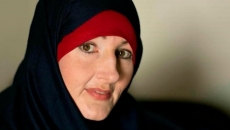TORONTO - When Nancy Morsi arrived in Oakville, Ont., last year after finishing her medical degree, she was planning to practice medicine. Instead, she's been working as a medical assistant since September.
Morsi is one of many immigrant doctors who find themselves working in jobs that are below their qualifications due to a set of challenges that make it difficult to get their credentials recognized. That includes a long and expensive licensing process and limited residency spots, especially for those educated outside the country.
The 24-year-old went to Ireland to study medicine in 2015 after immigrating to Canada with her family from the United Arab Emirates in 2013.
"I'm working at two clinics to fill up my time. At least it's something related to my field," she said. "I'm not practising as a doctor."
She hasn't been able to secure residency training in Canada after finishing her six-year degree in Ireland and is waiting for residency applications to reopen.
"When you apply, you're considered an IMG, international medical graduate … and then the spots are very limited compared to the Canadian graduates," Morsi said. "(It) is a bit unfair."
According to the Canadian Resident Matching Service, 2,844 Canadian medical graduates were matched to one of the 3,410 available residency programs in 2022. Only 439 international graduates were able to secure a spot.
The latest release of 2021 census data on education status, released by Statistics Canada on Wednesday, shows Morsi is not alone.
The number people in Canada with a bachelor's degree or higher rose to 6.4 million in 2021, which is 32.9 per cent of the of working-age population. That's up from 28.5 per cent 2016. The agency said recent immigrants make up nearly half of that 4.3-point growth, but they are still more likely to be overqualified for the jobs they have.
Debroy Chan, interim CEO of the Toronto Region Immigrant Employment Council, said the licensing process for highly educated and trained immigrants is often slow, expensive and difficult to navigate.
"Newcomers are not sure what they need to do," Chan said.
As a result, there are also many unemployed or underemployed internationally trained doctors and nurses in Canada at a time when the health system is crying out for more workers, he said.
"It's become urgent that we address these issues, or else Canada will lose its reputation as a destination for skilled people," he said.
John Zhao, a section chief StatCan's Centre for Education Statistics, said immigrants who arrived in Canada between 2016 and 2021 were more highly educated than any previous group within a five-year census period.
"Nearly six in 10 had a bachelor's degree or higher," he said.
Zhao said not all of these highly educated people are finding jobs that match their skills and training.
"Foreign degrees are not always recognized as equivalent in Canada," he said. "So immigrants with them are twice as likely to be overqualified as Canadian-born or Canadian-educated degree holders."
Hank Tsai studied mechanical engineering in Taiwan before immigrating to Canada four years ago, and he finished an aircraft maintenance and management program at Centennial College in Toronto earlier this year.
The 29-year-old said he has been working as a baker and as a server in a Toronto restaurant while applying for apprenticeships in his field for months without any luck.
"I applied for maybe 50 companies, and I only got three interview opportunities," he said. "Many companies request Canadian working experience."
Getting that kind of experience was all the more challenging during the pandemic. As was learning to speak English fluently, a barrier that many immigrants face when they arrive in Canada.
"In Taiwan we speak Mandarin, and we didn't have too many opportunities to speak English in our daily life," he said. "During COVID, everything was done remotely so it reduced the chance that I can talk to my friends, classmates (or) someone else in Canada. It was hard."
Highly educated immigrants and a strong college sector mean Canada continues to lead G7 countries with the most educated workforce — just over 57 per cent of workers aged 25 to 64 have a college or university credential.
Statistics Canada said almost one in four working-age people had a college certificate or diploma or similar credential in 2021.
Tricia Williams, a director at the Future Skills Centre at Toronto Metropolitan University, said the overall trend tells "a great story."
"Canada invested significantly in its education and has a really strong college system that is focused on getting people into the jobs they need," she said.
Some employers complain that not all highly educated graduates have tangible workplace skills, Williams said, but many have recognized the value of engaging closely with the college system to target future employees.
"Universities are starting to get there as well," she said. "They're starting to point to some programs where they have really close relationships with employers."
Williams said much of Canada's immigration is coming through the highly educated or highly skilled streams but newcomers may not have the specific skills for the labour market's needs at a specific point in time, and might face regulatory barriers.
"You get the quintessential example of a doctor driving a taxi … that's really bad for the individual," she said. "That's actually really bad for Canada as well."
Ruchi Gera is familiar with those challenges.
She was a dentist in India before arriving as an immigrant in Mississauga, Ont., in June.
While she has a degree in dentistry and a graduate degree in oral medicine and radiology from India, she won't be able to work as a dentist in Canada before passing licensing exams that could take up to three years. The alternative is going back to school for two to three years in Canada.
"It's definitely very frustrating," she said.
"I understand that an equivalency is important for me to start working over here, but just the length of the process is a little disheartening."






